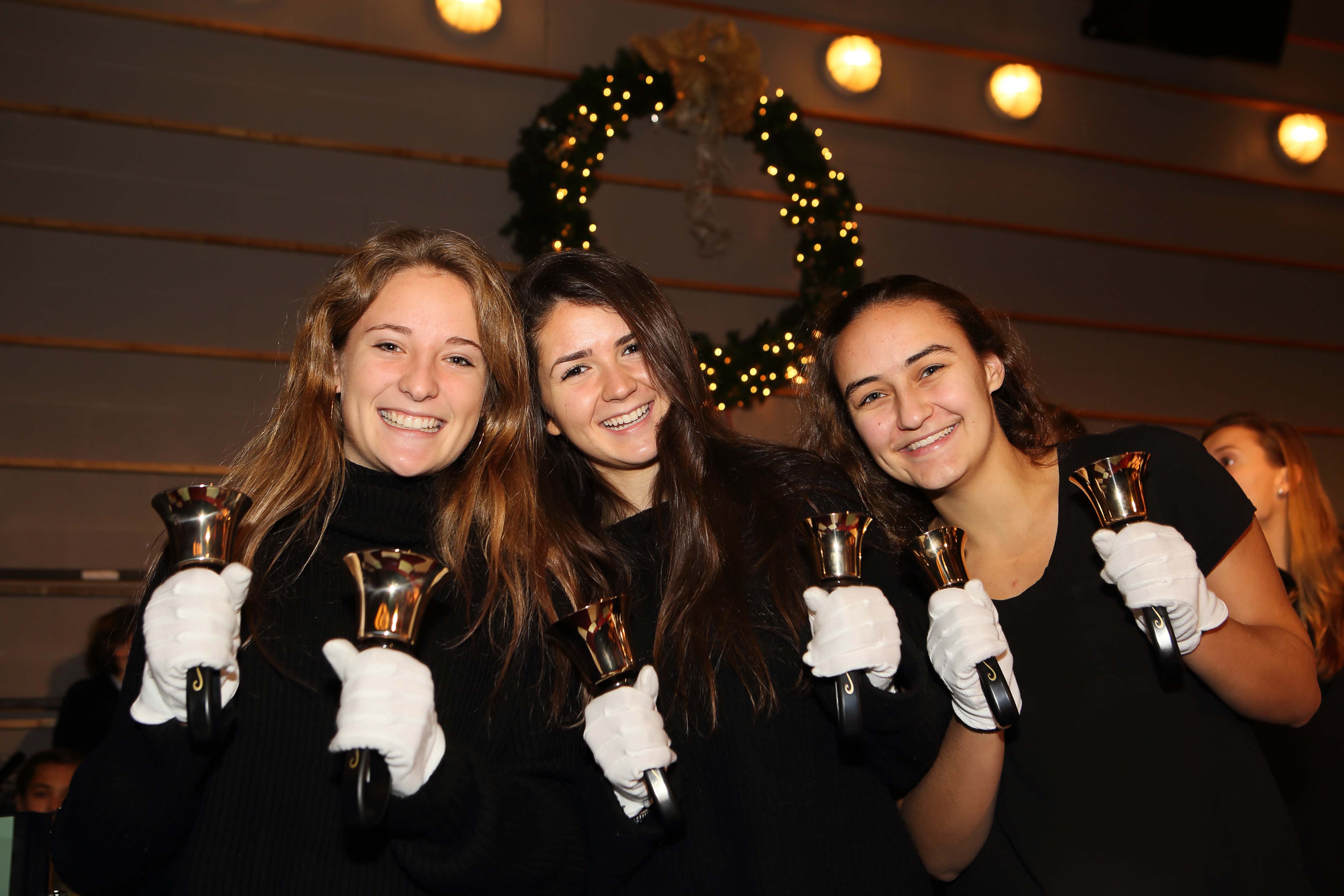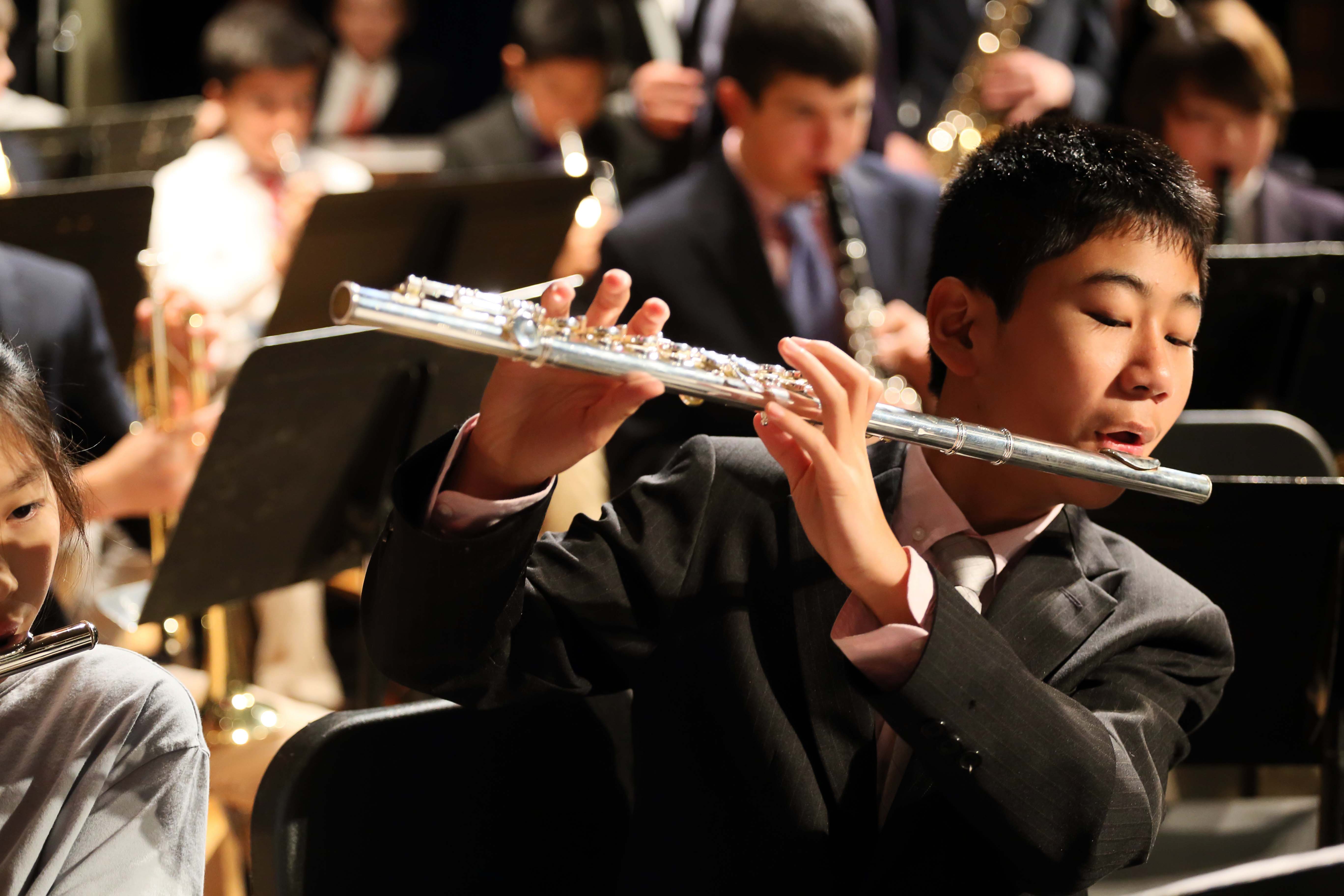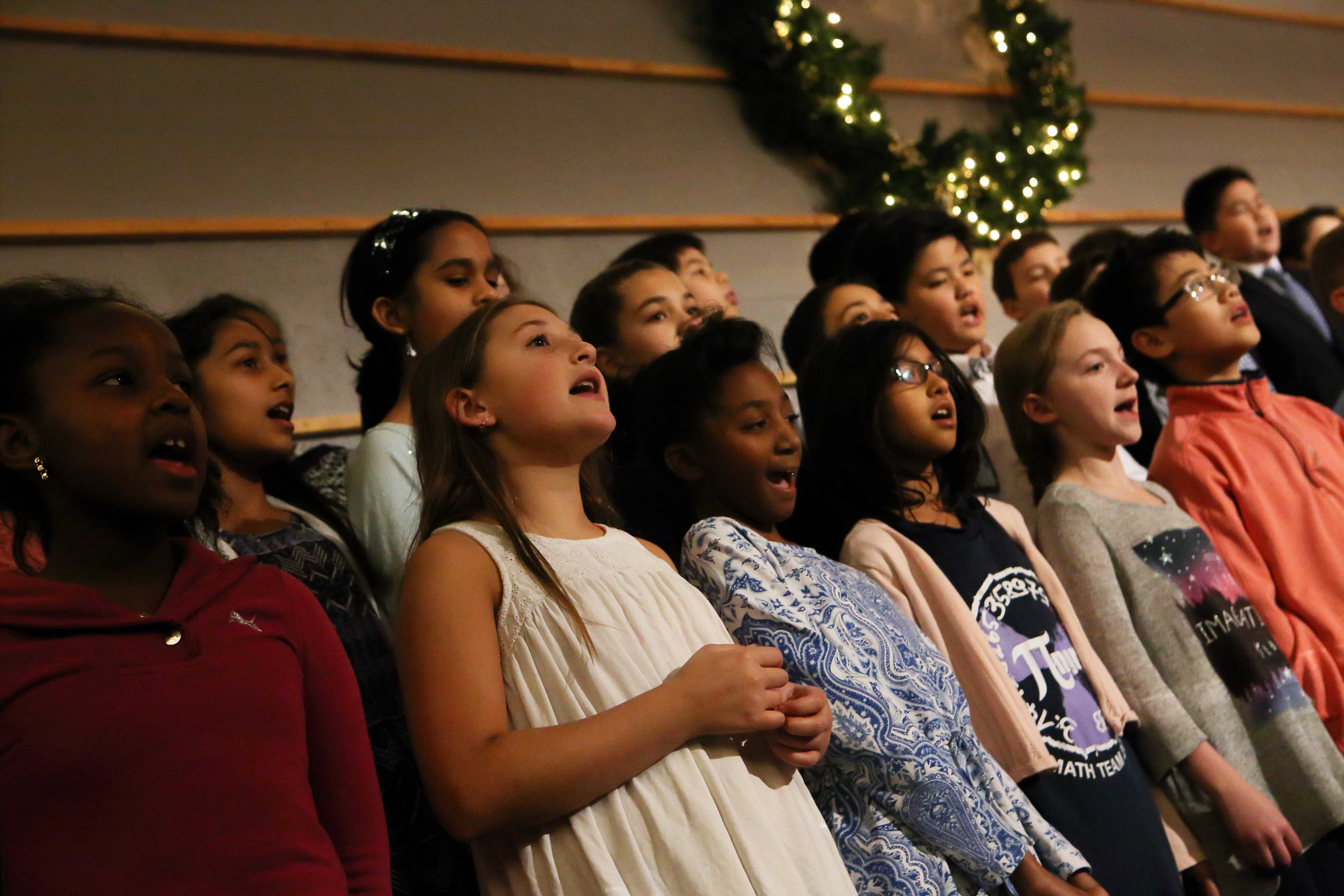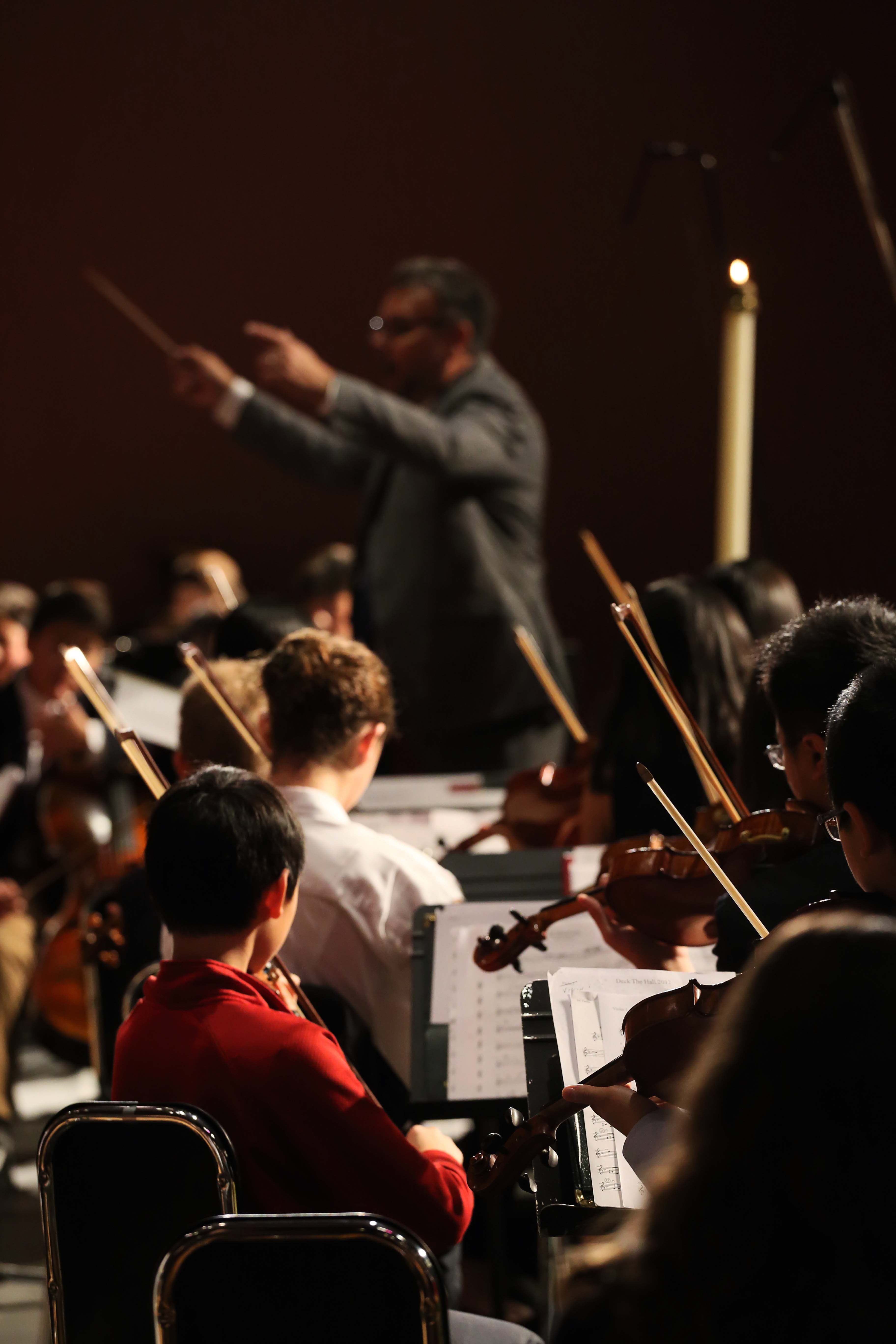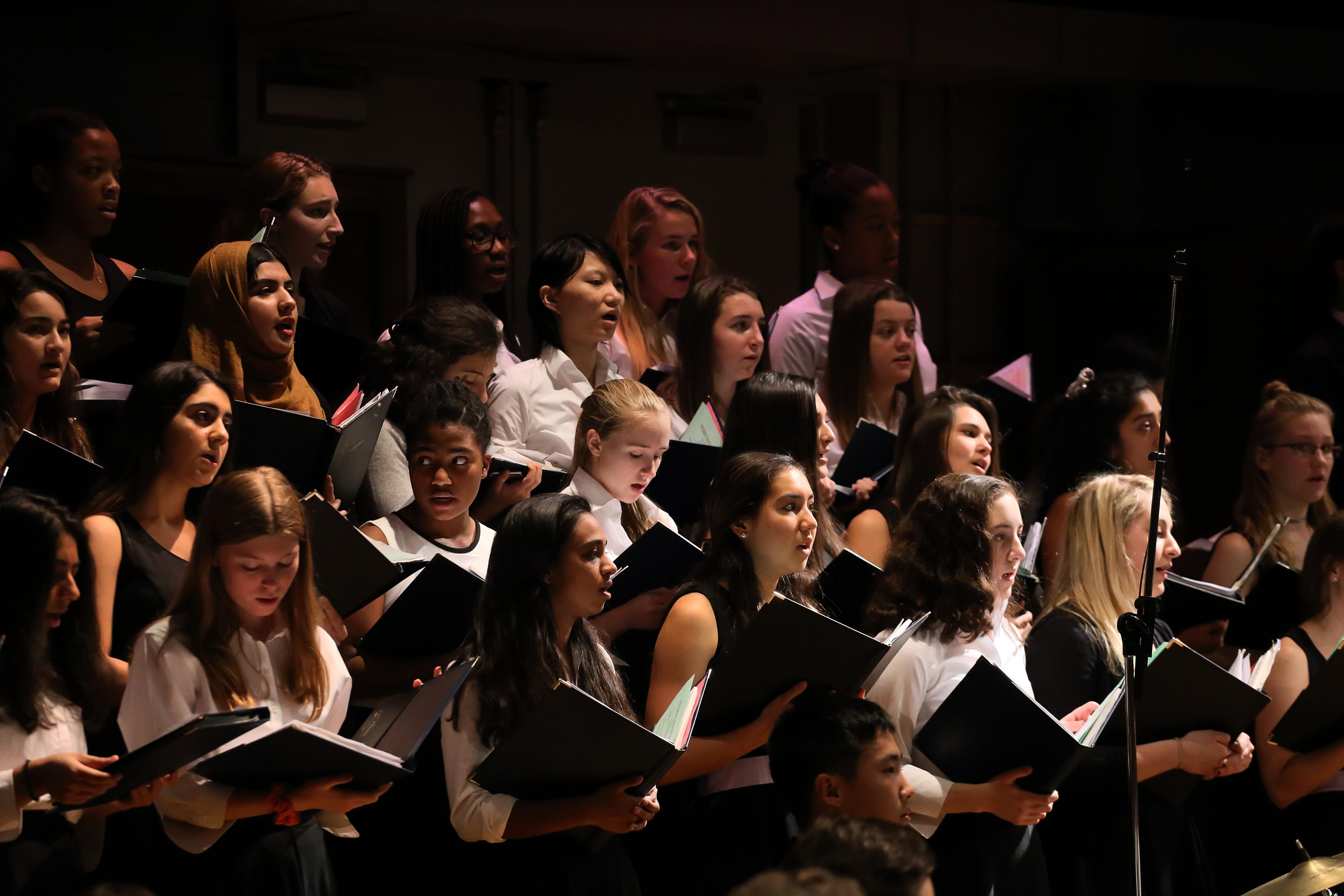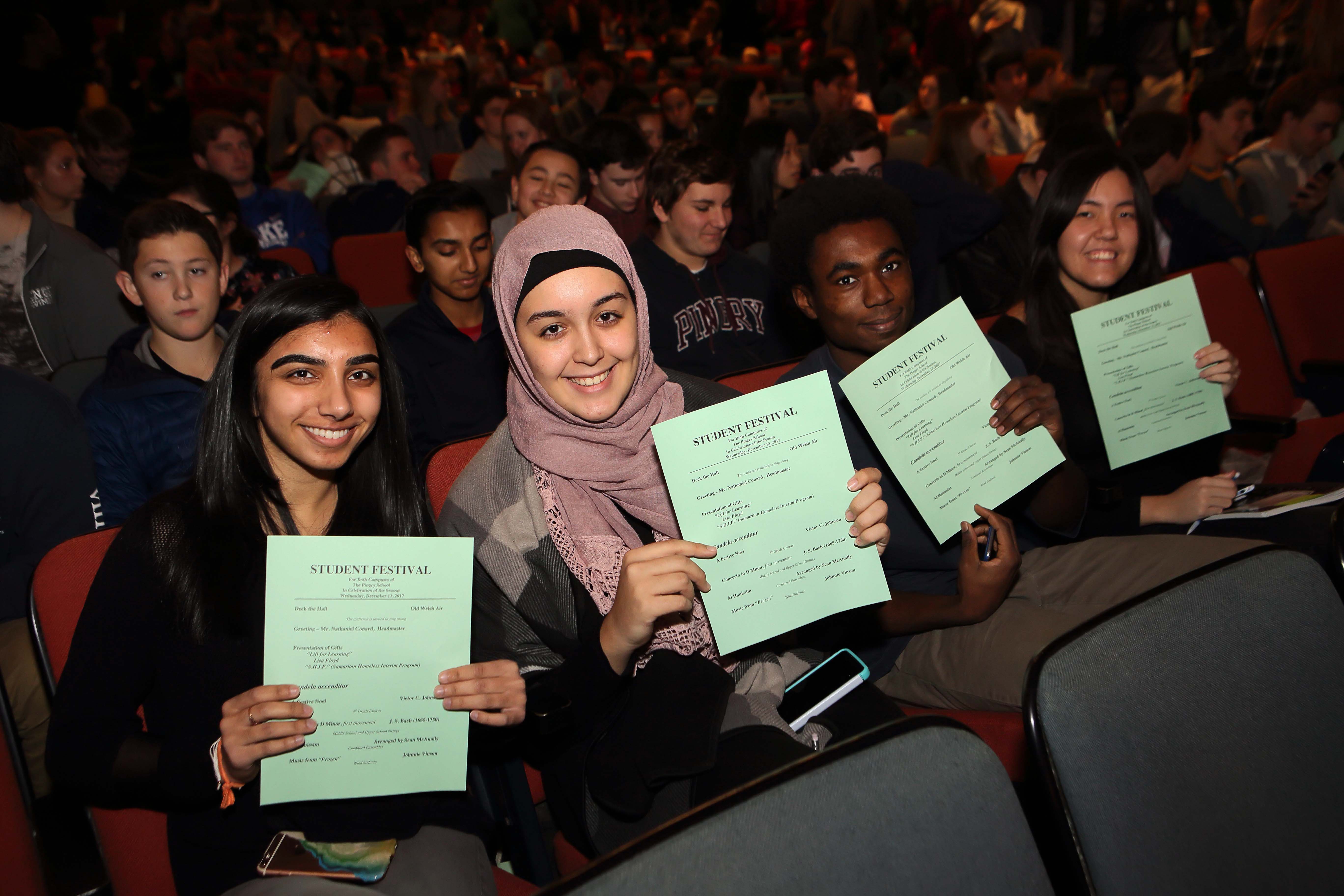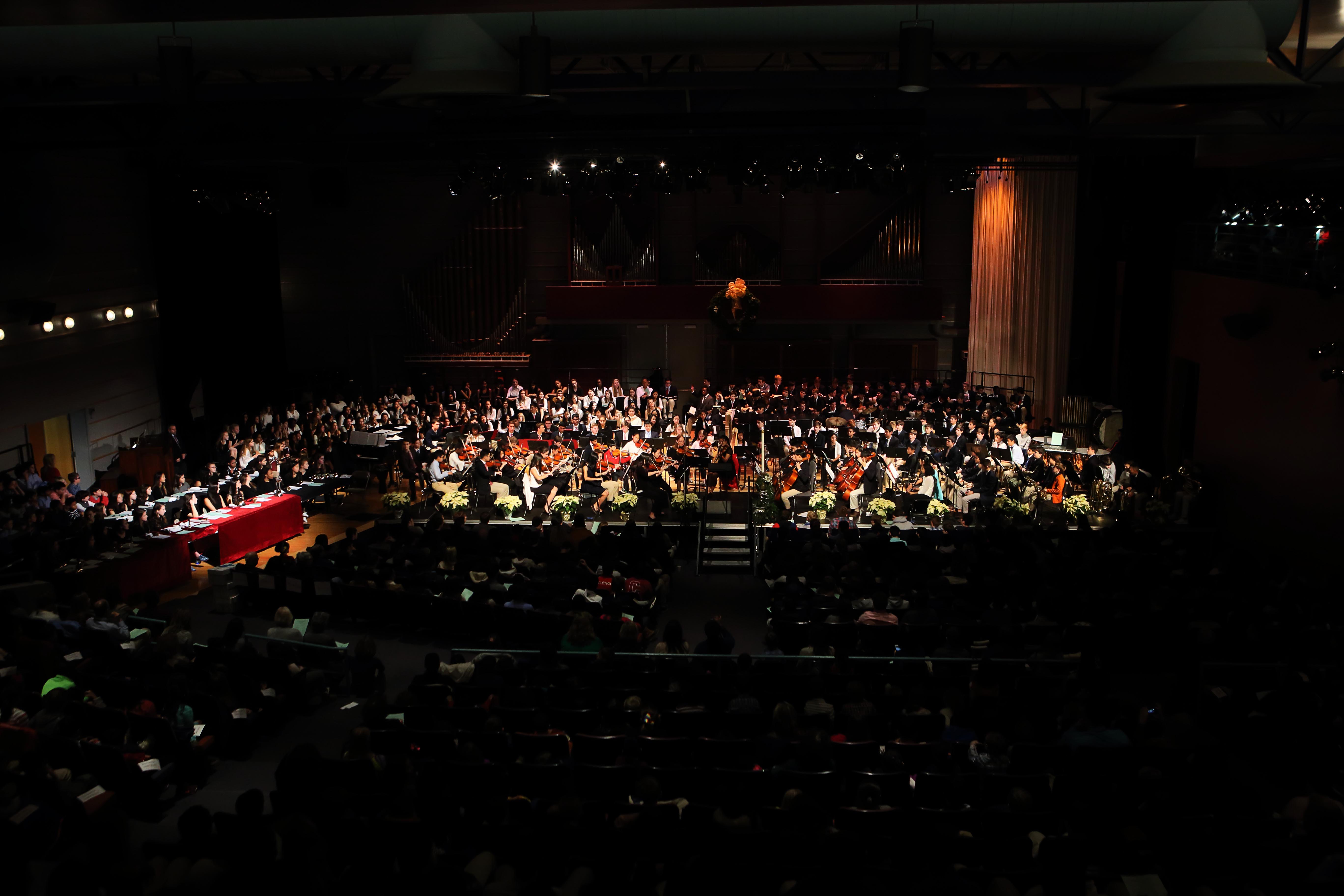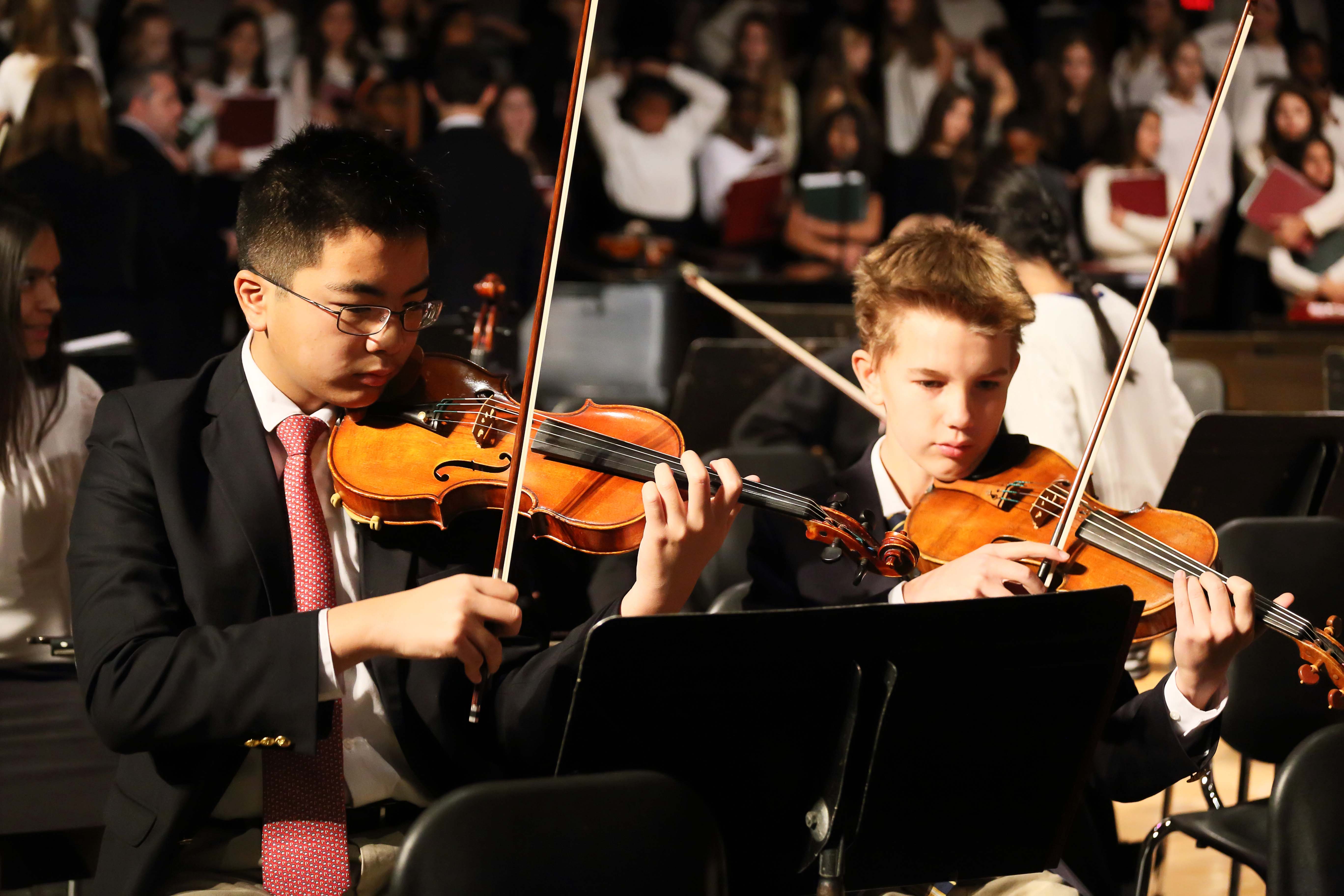
Dec 24, 2017 | Opinion
By Brooke Murphy ’18
As many people have seen by now, a new “Participation Policy” has been put in place. The policy, which was emailed to parents around November 26, states that students must participate in activities that they excel in throughout their time as a student in the Upper School.
Soon after parents received this email, there was backlash in student group chats and on social media. Students questioned why and how the school would be able to require such a thing. Specifically, how could the school require a student to take his or her time after school to participate in one of the school’s athletic teams?
Fundamentally, I agree that any student who does have a talent in a certain area should want to contribute that talent to his or her school community. But is it fair of the school to threaten dismissal of a student if he or she doesn’t do so? As a player on one of school’s tennis teams, I have seen the type of situation where players who would have been members of the varsity team do not play for Pingry.
The fear of loss and of not being the top player has driven members away from the bigger picture of team success. Of course, I do not know students’ reasons for not joining or continuing their time on the tennis team, but this policy has called me to question whether it was fair of these players to quit the school team. Is it fair that qualified athletes don’t contribute their skills to the community?
Not only as a member of the Pingry tennis team, but also as a member of a much larger tennis community, I have seen this type of behavior before. I have seen many girls across the state of New Jersey who don’t play for their high school teams because they believe that playing on a team far below their skill level will hinder their careers, that playing on a high school tennis team is not worth their time, or, in many cases, that playing on the team will lead to more losses, a result they are afraid of. An important question is raised by the situation: On what grounds can these girls’ schools require players to play for their teams?
Pingry has grounded their policy in the Honor Code. The Honor Code states that students should work for the “common good rather than solely for personal advantage.” After quoting this section of the text, the policy continues: “Accordingly, it is Pingry’s expectation that students will participate in ways that advantage the community.”
However, as one reads further, it can be noted that this “expectation” is actually a requirement – one that, if not fulfilled, might result in the denial of enrollment for the following school year. Is it more selfish for the school to require such players to dedicate such a large portion of their time to its programs or for the students to choose not to share their talents through the school’s programs?
As a highly ranked and highly dedicated tennis player, I have always felt compelled to play for my school’s tennis team and help the team advance to every championship possible. For a tennis team, the loss of even one player can make a huge impact. However, it is within my own morals that I feel as though I should play to help a larger focus than myself, and it is my choice to express this sense of obligation through Pingry’s teams and not elsewhere. Others may interpret their own morals through different actions, maybe by participating in a community outside of the school.
I believe that every student should be an active member of whatever he or she can in the school community, but it should be within his or her own moral standards. It shouldn’t have to be forced upon these students by regulations or threats of expulsion. With this, I would urge not only for students to dive into the rich programs Pingry has to offer, but also for the school’s administration to appreciate the students who already want to benefit the community and not just those students who are deemed more talented and valuable to the school.
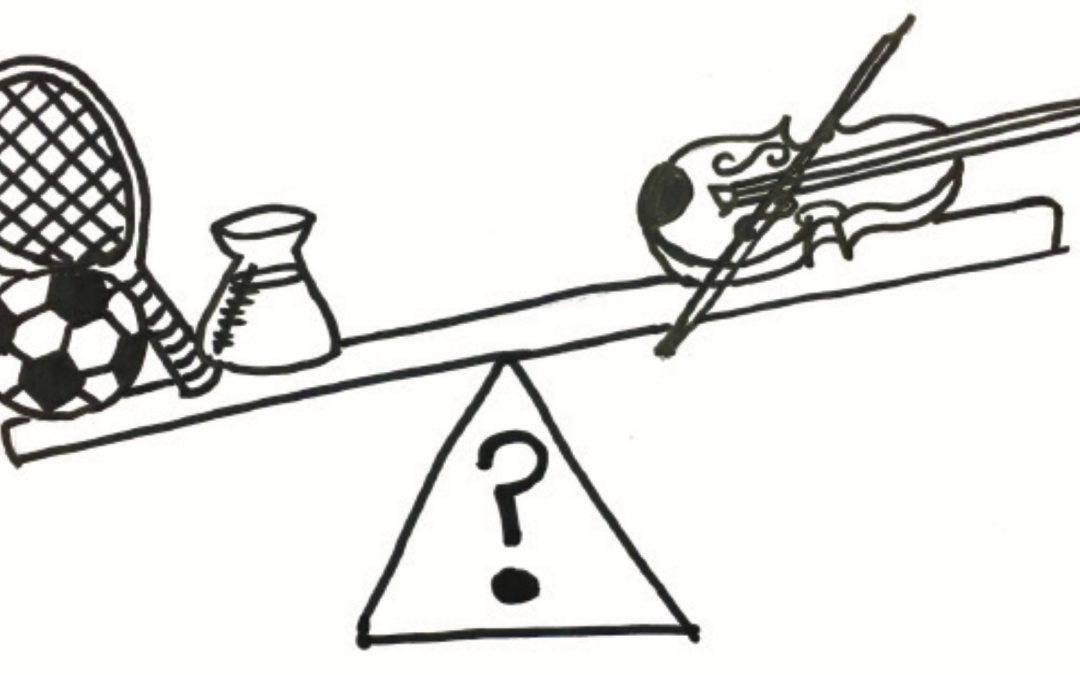
Dec 24, 2017 | Opinion
By Felicia Ho (V)
Shrill, piercing, and unbelievably scratchy. The first time I heard a violin, I couldn’t believe my ears. Yet, there I was at my local music shop, picking out my first violin as a fourth grader. Hundreds of violins lined the walls, waiting to be brought to life with a single bow stroke. A select few were lined against the back wall; they were the chosen ones that had been treasured for centuries on end by the old and the young. As I grasped the neck of a dark brown, German-made violin and picked up a bow, I was determined to let its voice ring to the world for the first time.
When I was in the Lower School, coming to the Winter Festival at the Upper School was always the highlight of my year. I couldn’t wait to sink into those big, comfy red and blue chairs in Hauser Auditorium as Mr. Berdos waved his baton to begin the concert. My gaze always fell on the concertmaster, who was a quiet yet important leader of the entire orchestra and always seemed perfectly in sync with the conductor.
Years later, I’m no longer ensconced in the comfort of the red chair. Instead, I am sitting in a hard, black metal chair as a part of the Upper School string orchestra. As the conductor’s baton waves overhead, I look at the same piece I have played for four years and try to make sense of the black lines that flood the page. Around me on the stands, heads are bobbing up and down, and there are wide gaps in the bleachers that had once been filled with eager faces and cheery smiles. As I look out to the audience, rows and rows of seats are empty. Those performing glance down at flashing phone screens, impatiently tapping their feet, their minds on school and work.
What has happened to the power of music? Why is it no longer bringing people together the way it used to?
The answer may lie in the recent budget cuts on national arts programs, a result of the increased emphasis being placed on STEM and athletics programs. In March, President Trump announced that “… the National Endowment for the Arts and the National Endowment for the Humanities would be eliminated entirely…” (NPR). Historically viewed as an integral part of education, the arts have begun to fade, largely due to their perceived “uselessness” in an era of progressive technology.
But why was music so important in the first place? Was it not to connect the world, breaking all barriers, be they linguistic or geographical? Music is the universal language, and directing funds and support away from this important subject is damaging to current and future generations. Now more than ever, we need music to connect us in these divisive and stressful times. Without sufficient emphasis on music programs, we cannot compose this bridge.
Fortunately, Pingry is heading in the right direction. Although it has spent most of its budget and time on STEM and athletic programs in the past, the school is beginning to improve the arts programs. Just this year, the newly formed percussion ensemble blew me away at the Winter Festival, and the newly appointed Arts Ambassadors have paved the way for Pingry arts programs in gaining more recognition from fellow classmates. In addition, Hostetter on the Five performances are great venues for student musicians to share their talent and music with the community.
Making a violin sing is not an easy job, as I’ve learned in the past seven years. Every day I’m faced with a new challenge, whether it be the difficult rhythm, technique, or structure of a piece. But I’ve learned to push forward, and the results can be rewarding. If everyone in the community can join together in a harmony by attending and supporting their peers at school concerts, we can truly make our hearts sing together.

Dec 24, 2017 | Opinion
By Darlene Fung (V)
I am a swimmer, and being a swimmer means having a notoriously large appetite. We high school swimmers might not be inhaling Michael Phelps’s famous 12,000-calorie diet, but we certainly do consume more than the 2,000 calories an average American eats in a day. That being said, over one third of my daily food intake comes from Pingry’s cafeteria, and if I’m being totally honest, I love it.
While some may not share this sentiment, I look forward to lunch at school every day. I came to Pingry as a freshman, and I vividly remember my buddy day. I sat through a health class, a chemistry class, and a geometry class. The classes were all great, but I have to say, lunch was my favorite part of that day. I was floored by the swarm of students walking around with a wide variety of well-portioned meals that were vibrant in color, served on real plates, and eaten with real silverware. There was chicken, and rice, and pasta, and grilled cheese, and salad, and a panini station, and peanut butter and jelly—the options seemed endless!
I’ve been to other schools’ cafeterias where students are served a few chicken nuggets, one scoop of mashed potatoes that are made from powder, and some canned fruit that consists of a couple of beige cubes floating in syrup. On other days, students get a boiled hot dog set on a slice of white bread, a scoop of brown bean paste, and some soggy, gray collard greens that nobody but the bravest kid would eat. Food is served on styrofoam trays that are smaller than the average Pingry student’s laptop, and that’s that.
The difference between these schools’ lunches and Pingry’s lunch is night and day, and come freshman year, I was exceedingly satisfied with my dining experience at Pingry. I was so grateful to have a variety of healthy options to choose from as well as the chance to grab a piece of fruit to snack on throughout the day.
As my freshman year went on, I also became increasingly appreciative of the care taken to make our dining experience the best it can be. The kitchen staff puts an incredible amount of effort into serving hundreds of hungry, growing students a variety of over six different meal options daily. Even when we are not at school for lunch, whether for a game or a field trip, we are still served food thanks to the extra time put in to make brown bag lunches on top of regular in-school lunches.
In addition to the effort the kitchen staff puts into all the nutritious meals they prepare for us, they go above and beyond to tend to the small details regarding how we are served as well. Every day, just like my first day of freshman year, I am greeted with a warm smile and a “Hi, how may I help you?” before I am served a neatly portioned plate of food complete with an extra ladle of sauce, a sprinkling of green onions, or even an edible flower.
It is the special care the kitchen staff put into the deliciously prepared lunches we enjoy five days a week that makes our dining experience all the more meaningful. So the next time you are in line waiting for lunch, don’t forget to express your gratitude to the kitchen staff. And if you find something that doesn’t particularly suit your taste, think about how lucky we are compared to the students in some other schools. Just as we already appreciate the amazing choices we have in classes, sports, art, and beyond, we should show our appreciation for the great choices we have in our lunches as well.

Dec 24, 2017 | Opinion
By Alexis Elliot ’18
“Ok, now can you describe yourself in 30 seconds or less?” During my college interview, I shifted in my seat as I tried to come up with an answer. Not wanting to seem unprepared but also worried to speak without gathering my thoughts, I asked my interviewer to give me a minute to think. As I left the interview, I couldn’t stop thinking about how in all of my life, I’ve never been asked to shrink myself down to 30 seconds. Even as a teen entrepreneur who pitched to Warren Buffet, I had 60 seconds to present a business idea. How much more would a person with an entire life story get?”
The experience I had during my college interview made me wonder if the college application process gives people enough room to explain who they really are. As I work on many of my college supplements, although I’m happy to get many of them out of the way, I sometimes worry that I didn’t mention many of my activities or certain life experiences that I really valued. Focusing on events that occurred only during high school — as the process requires — isn’t enough to capture the range of my life.
Furthermore, my fellow classmates seem to agree with me. In a voluntary survey conducted in the Class of 2018, 68% responded that they feel the college application process does not give applicants enough room to express who they are.
As a result, it’s easy for students to get stuck trying to balance moderation and simplicity. Yes, colleges value students who show a wide variety of achievements and interests, but they also value students who thrive in a few select areas. This paradox creates the challenge of trying to display all of one’s achievements while trying not to seem all over the place.
Further, I’ve found myself having to pick and choose which aspects of my life I want to demonstrate as ones that I value the most. Of course words on an application can’t encompass an entire person’s life experiences or values. But, I often find it hard to choose which values I want to incorporate. Do I talk about my experience playing soccer with an all-boys team in Ghana? Or should I talk about something more academic like participating in a coding camp for seven weeks?
Interestingly, in Peer Leadership, we were faced with this same task. We were instructed to write words or phrases that make up our identity. We then had to put them on a wheel with the things we value most taking up more space. Many of us found it difficult to prioritize some things over others. Shrinking ourselves down into categories felt impossible.
For argument’s sake, the college application process has many positives. Even though we don’t have much space to focus on many aspects of our lives, the essays are required to be short because so many millions apply. Another point to consider is that recommendation letters and interviews help account for the more personal side of the process.
Even so, the process still allows much of what makes up an applicant to get lost.
While the college process won’t drastically change anytime soon, that shouldn’t discourage us. Sometimes saying less is more. American photographer and environmentalist Ansel Adams wrote, “When words become unclear, I shall focus on photographs. When images become inadequate, I shall be content with silence.”
Even though it’s easy for us to go crazy trying to explain ourselves in our applications, we should sometimes opt to just leave things out when it becomes too much. Don’t be afraid to keep an essay or explanation simple. Get your point across, but don’t feel burdened to hit every detail or every experience. Yes, there is the pressure to prove yourself to a college by explaining everything. But there is also beauty in the mysteriousness of having unfinished chapters in the story of your life.
Dec 24, 2017 | Editorial, Opinion
By Megan Pan ’18
“So we beat on, boats against the current, borne back ceaselessly into the past.” The Great Gatsby, F. Scott Fitzgerald
Ever since I was young, I’ve had a strong sense of attachment. My mother told me that when I lost my first tooth, I cried over the loss of a part of me that had been with me for seven years. As I grew older, this sense of attachment developed into a fear of losing hold of the past. While the eponymous hero of F. Scott Fitzgerald’s The Great Gatsby attempted to recreate the past in the present, I preferred instead to hold on to what remained.
Tangible objects served as portals to the intangible; I kept notebooks from elementary school, saved old voicemails on my phone, and held on to even the most trivial of mementos, like gum wrappers, in order to have an extant link to the people, places, and experiences of my memories. In my mind, preserving my memories of the past in the present validated their having happened, and to lose a piece of my past in the present was to lose the past itself.
In March of 2015, my grandmother passed away. She was the cornerstone of my childhood, practically raising me as my parents worked in the city. My grandmother played a part in all of my happiest memories: teaching me how to ride a bike, driving me back and forth from school, telling me stories before I went to sleep. Upon her death, I lost a beloved family member who was as precious to me as my own life, and the world with her in it that I had known for all my life crumbled away.
I was living in a postmortem world that I never imagined could have existed, and I was unable to find any way of fully bridging the gap back into the world of the past. I had photographs, of course, and clothes she had worn, journals she had written, gifts she had given me—but none of it was enough. Like Harry Potter’s resurrection stone, they managed to conjure the image of my grandmother, but they could not bring her back, nor could they represent the entirety of the love and warmth that I missed.
It was my grandmother’s death that led me to reconsider my obsession with the past. Up until that point, I had lived my life with a retrospective focus, with a preference for the preservation of old. However, during my period of mourning, I realized that my grandmother would not have wanted me to dwell on her death and to forget to live. Everything she had done for me while she was alive was in service of my future, and to disregard that was to dishonor her memory. My grandmother taught me that I must embrace living in the present, trusting that what really mattered from the past would stay with me.
In about two weeks, I’ll be turning eighteen. What a strange thing—the inevitable passage of time! Though my heart feels entirely like that of a child, its vessel has managed to outgrow itself. To be perfectly honest, I never imagined that I would live to see the day I turned eighteen. I don’t mean this in a morbid sense—it’s just that, throughout all these years, the idea of adulthood always seemed so far away, a fantastic mirage somewhere in the distance, beyond the boundary of where I could ever reach. But come January first, I’ll have crossed a threshold, and the door on my childhood years will be gently shut.
However, this isn’t to say that my connection with the past will be completely lost. Though her physical form is now a relic of the past, my grandmother’s spirit has remained with me in the person I am today whom she has helped to shape, and I trust that she will remain with me still in the person I am becoming. Each moment I have lived of life up to this point will play a similar role, molding the clay of my character—hopefully into someone who is kinder, stronger, braver, wiser—as I look forward into the future.
There will always be a part of us that will never completely relinquish its fondness for the past. Nostalgia is a powerful force, so much so that it was once considered an illness afflicting certain groups of people. James Gatz was forever tethered by the remembrance of the past, unable to ever move forward toward the future. However, the plight of Gatsby does not have to be the fate to which we are all condemned.
Instead, the past can serve as the wind in our sails, pushing us past the current as we venture out onto the open sea.
Dec 24, 2017 | Editorial, Opinion
By Rachel Chen ’18
I’ve been crying a lot lately, but here’s the latest reason why: on November 26, I decorated the family Christmas tree for last time.
It was the latest of many lasts that weekend: my last Thanksgiving I’d welcome my sister home, my last squash tournament road trip with my parents, my last Thanksgiving dinner I’d sit at the “kids’” table instead of the “adults’.” I suppose they all compounded, unacknowledged, until they hit me like a double-decker bus at 12:09 AM as I stared into the glowing ornaments and shimmering tinsel I had hung. Who’s going to decorate the tree next year? Who’s going to make Mom and Dad excited for Christmas?
I could see it in my head so clearly—Christmas, always powered by my sister’s and my incessant Mariah Carey singalongs and burnt sugar cookies, fading from our household, evaporating like breath on a windowpane. My parents had only ever loved the holidays as much as Marcia and I did. Would my parents still give each other gifts when the two of us were gone? Would they even put up a tree?
My tear ducts, overworked as they are in the season of giving and college applications, started to flow. Marcia knew wordlessly why I was upset. “Did you know,” she started, pulling me in for a hug, “that 90% of the time you will ever spend with your parents is over by the time you leave for college?”
Now, I’ve searched for this statistic and can’t find it anywhere. But confirmed or not, it still packs a punch to the heart. Realistically, how many hours will I spend with my parents after I leave for college? A summer here, a holiday here. Blink twice and I only call once a week between my work commute and dropping my kid off at school. That not-so-distant future is a far cry from the Sunday morning pancakes and long car rides and Costco runs we share now.
And that explains why they’ve been so lenient lately. Classic symptoms of early onset empty nest syndrome—I just didn’t recognize them until I put the star on the top of the tree. In the past few weeks, my parents have bought my sister and I orchestra tickets to Anastasia on Broadway (amazing show, 12/10 would recommend!); gifted us a slew of lululemon clothing; even surprised us with entirely unnecessary, expensive Fastpasses for our winter break visit to Universal’s Harry Potter theme park. They’ve displayed an uncharacteristic indulgence with their eat this, do that attitude. Nothing is a waste of money anymore—not if it offers happiness to enjoy, an experience to share, another memory to cherish.
Their indulgence makes me ashamed of my behavior during the past few weeks. I’ve used stress, exhaustion, and anxiety as excuses to be snappy, self-centered, and rude. And worse, my parents have simply tolerated it with closed-lipped grimaces because they love me, wholly and unconditionally—the way they have for the past seventeen years, they way they will continue to forever.
Okay, maybe I’m being overdramatic. I’m sure there will be other holidays in the future for which I’ll return home early enough to untangle the lights and hang up stockings. But staring at the Christmas tree at 12:09AM, I took a breath during my race to move on—from high school, from Pingry, from family—and felt, for the first time, that I wanted everything to stay the same.
So here’s what Marcia told me, that I’m now telling you: it is your duty to make every minute of these last few years count. Be kind. Be patient. Be present, because here is something wonderful and exciting and terrifyingly sad, all at once: everything is going to change. Everything is changing already. Treasure these moments before 90% of your time with your parents is gone.
I’ve been counting down the days till I leave for college for years now. I just never realized that Mom and Dad have been, too.
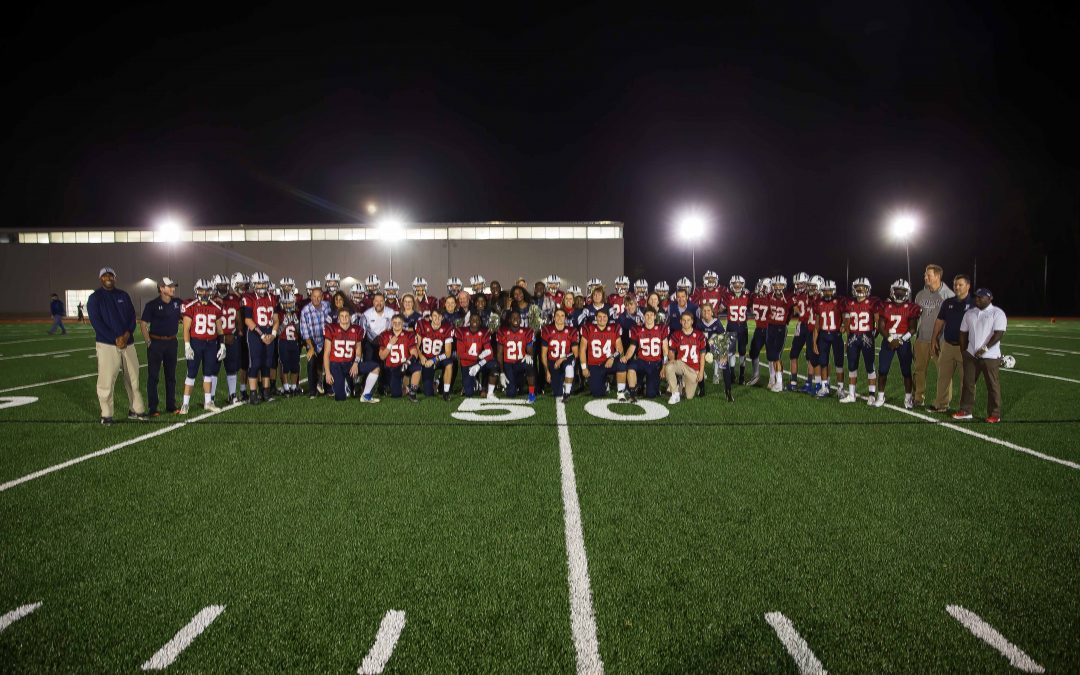
Dec 24, 2017 | Athletics, School News
By Noah Bergam ’21
On November 3, the Big Blue football team enjoyed a 42-16 win against the George School of Newtown, PA, at the PSPA’s annual Friday Night Lights. Students and faculty from both the Lower and Upper School campuses came to support and cheer the team on to victory.
Middle and Upper School singers kicked off the evening with the National Anthem, and thanks to Middle School Athletics Director Gerry Vanasse, younger fans enjoyed a variety of games, activities, and prize giveaways before and during the game. Middle School students ran Pingry flags across the field and participated in a Mega-V-Ball game during halftime.
Captain Obi Nnaeto (VI), who broke the mark of 1,000 yards run two weeks earlier, led the team, rushing 214 yards on 13 carries and scoring three touchdowns, which effectively locked in the victory by halftime. Ryan Feeley (VI) led the defense with seven tackles. Brian Benson (V), Channing Russell (VI), and Nate Hefner (V) also scored.
“It was a great showing for Pingry football,” said freshman defensive lineman Ore Shote.
Meanwhile, under a huge tent, students, parents, faculty, staff, and alumni enjoyed a delicious tailgate selection, which included pizza, meatballs, mozzarella sticks, pigs in a blanket, wings, hot apple cider, and a wide range of desserts, all provided by the PSPA.
Overall, Friday Night Lights was a fun night for the whole Pingry community. Congratulations to Big Blue football, and thanks to all the Pingry fans for their support!
Dec 24, 2017 | School News
By Aneesh Karuppur (III)
On November 16, students from the Upper School and Middle School attended the John Hanly
Lecture in Hauser Auditorium. The speakers this year were Daniel Pincus ’96 and his friend, Mohammed Al Samawi, a young man from Yemen he got to know through his interfaith work.
The John Hanly Lecture Series on Ethics and Morality has been holding annual lectures since 1999, when former Headmaster John Hanly retired. In recognition of his love of teaching and interest in ethical questions, the John Hanly Fund allows Pingry to bring in speakers to talk about issues regarding ethics and morality every year. The theme of this year’s assembly was the question of how far one would go to take up someone else’s problem as his or her own.
Pincus, a consultant for The Quantic Group, a pharmaceutical consultancy company, first met Al Samawi through his membership in the Muslim-Jewish Advisory Council (MJAC) and the American Jewish Committee (AJC). The MJAC brings together Muslims and Jews from all walks of life to collectively addresses issues shared by the Muslim and Jewish communities. The AJC, co-convener of the MJAC, is an advocacy group for Jews and the Jewish faith.
To begin their joint talk, Pincus spoke about his experience at Pingry and directly addressed his former teachers from the stage. He became interested in inter-faith work largely because of friends he made as a jazz musician at the University of Pennsylvania. Several years after meeting Al Samawi at a conference in Germany, Pincus heard from him again when Al Samawi needed help escaping Al-Qaeda during the civil war in Yemen. Though he didn’t know Al Samawi well, Pincus knew he had to do all he could to save a life. He used his contacts and cell phone to coordinate help over a span of 13 days in 2015.
In relating his story, Al Samawi spoke about his upbringing in a Muslim household in Sanaa, Yemen, where a disability forced him to stay home and learn English rather than socialize with his peers. This knowledge of English allowed him to connect with others outside of Yemen on Facebook, which led him to eventually attend the Muslim Jewish Conference in Sarajevo, Bosnia in 2013, a conference organized by Pincus.
A fellow of the International Center for Religion and Diplomacy for the Middle Eastern and North African region, Al Samawi plans to release his memoir, The Fox Hunt: Escape From Yemen, in April 2018. His book is also currently being made into a movie by Marc Platt, producer of La La Land.
The student body was very moved by the lecture. At the end of the hour-long assembly, the speakers were given two standing ovations. Alex Strasser (V) said afterwards, “I thought that the Hanly Lecture was able to demonstrate to all of us the way that meeting someone and going through some incredibly difficult experiences can come with moral conflicts and enlightened us on how they…were overcome. It also gave me hope that I might be able to someday help someone in the same outstanding way that we heard.”
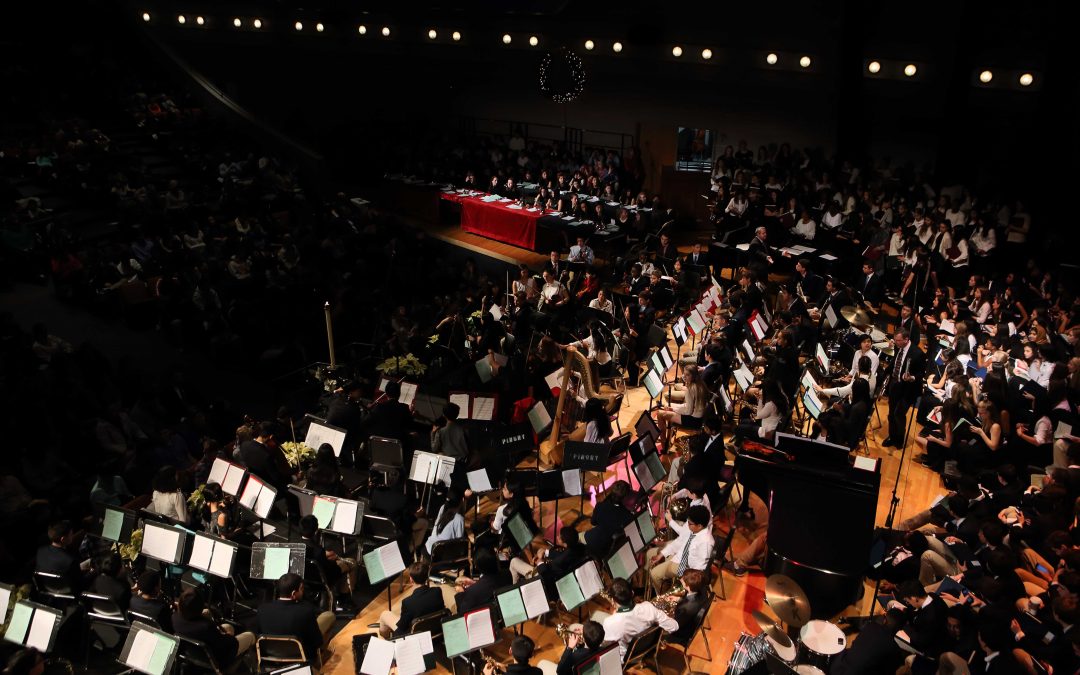
Dec 24, 2017 | Arts, School News
By Udochi Emanghara (V)
On December 13, 2017, Pingry hosted the annual Winter Festival, the only time that the Upper School and Lower School come together for one event. This festival has been a tradition for over 100 years. It celebrates the accomplishments of the orchestra, men’s and women’s glee club, Middle School band, strings ensemble, hand bells, and the music direc tors by showcasing their work to the entire school. These efforts, coupled with the festivities and the environment, make the concert an important part of the school year in which over half the school participates.
The event opened with “Deck the Halls” conducted by Mr. Tom Berdos, the Lower School music instructor. Headmaster Mr. Nathaniel Conard then delivered an introductory speech, which focused on the importance of community and the coming together of the two campuses. Next came the presenting of gifts to Ms. Lisa Floyd, the leader of Lift for Learning, an organization that gives food and clothes to impoverished people. Afterwards, the festival commenced with the tradition of Candela Accreditor (the lighting of the candle) by kindergartener Jake Fey and Student Body President Michael Weber (VI).
Highlights of the concert included “A Festive Noel” performed by the fifth grade chorus. As the fifth graders are the only group from the Lower School that performs at the festival, their contribution was highly anticipated and they delivered. In addition, it evoked nostalgia in people who were once a part of that group.
Alyssa Chen (VI) said, “Watching the fifth graders filled me with warmth.” Another highlight was “Al Hanissim,” a Jewish prayer performed by the orchestra, middle school chorus, and upper school glee club with solos from Alyssa Chen (VI) and Hugh Zhang (III). This piece is a chorus favorite due to its lively beat. Lastly, the middle school percussion ensemble performed “Kishmar,” a take on Led Zeppelin’s hit performed by the middle school percussion ensemble. This was the debut of the group and they instantly became a crowd favorite. The concert concluded with a rousing rendition of “Twelve Days of Christmas.”
While all of the selections were amazing, the words of Mr. Conard ring true: the event was truly about bringing the community together. Maya Huffman (VI) and Melissa Tungare (VI) recall their first times seeing the concert. Huffman, who came to Pingry as a kindergartner, said that she was “always excited for the concert as a lower school member.” Similarly, Tungare has been going to the concert for over ten years with her big brother and has witnessed multiple performances. As a current Balladeer, she said that “it is nice to now be a part of the concert.” Over the years, Pingry has changed drastically; the change in campus (moving from Hillside), the admittance of females into the school, the construction of the Middle School, and much more showcase the development of Pingry as a school. Similarly, this concert has gone through its changes as well; the one thing that remains the same is the spirit of the concert. In the words of Mr. Miller Bugliari, “the whole sentiment from a long time ago is still present.”
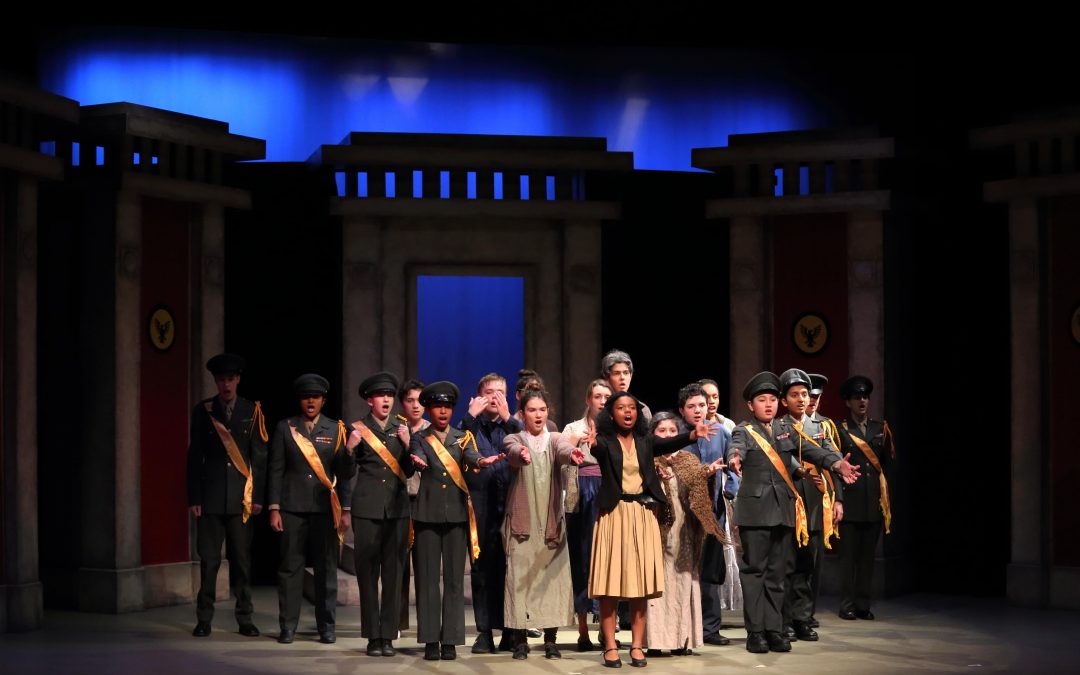
Dec 24, 2017 | Arts, School News
By Allison Verdesca ’18
On November 9, 10, and 11, the Drama Department performed its annual fall play Antigone by Sophocles. The Greek tragedy describes life in the city of Thebes under the domineering rule of King Creon. A part of Pingry’s freshman English curriculum, the play examines issues of divine law versus societal law and the use and abuse of political power. The entire freshman class, along with special needs students from Montgomery Academy in Basking Ridge, watched the play’s dress rehearsal.
The play follows a young girl named Antigone (Meghan Salamon, VI), whose two brothers turn on each other and cause a civil war. After they kill each other in battle, the newly crowned King Creon (Lucas Vazquez, V) advocates for the burial of only one of the brothers. Fearing the retribution of the gods, Antigone sets out to bury her other brother, despite the threats of Creon and warnings from her sister Ismene (Alison Verdesca, VI). Incensed by Antigone’s disobedience, Creon demands that Antigone be buried alive. Creon’s son Haemon (Giancarlo Castillo, VI), who is engaged to Antigone, tries to change his father’s mind but fails. After the blind seer Tiresias (Megan Pan, VI) predicts that Creon’s stubbornness will lead to disaster, Creon reconsiders. When he reaches the tomb, Antigone has hanged herself and Haemon, after attempting to kill Creon and failing, kills himself as well. When Eurydice (Sara Donovan, VI), Creon’s wife, hears the news, she also commits suicide, leaving Creon a lonely and broken man. In the play, the Army Chorus and the Citizen’s Chorus narrate the story and comment on the plot.
Directed by Mrs. Meaghan Singer, Pingry’s production put a new spin on this classic Greek tale by setting it in a dystopian future. Mrs. Singer said of the show’s setting, “I heard Antigone’s words ringing in my ears — ‘these citizens here would all agree…if their lips weren’t locked in fear’ — and I knew immediately that my version of Antigone would be set in a totalitarian state, a military regime, and my chorus would be an army, not unlike that of Kim Jong Un’s, or Stalin’s, or Hitler’s.”
This was Mrs. Singer’s first year directing the fall play, though she assisted Mr. Romano in the past. Of the Drama Department, she said, “I love working in such a supportive and giving environment. It is a true pleasure.”
In addition to having Ms. Singer as a new director, Antigone had a new master carpenter, Mr. Christopher Abbott. Mr. Abbott worked with Mrs. Jane Asch to create a futuristic set inspired by the play’s dystopian world. Another new faculty member, Mr. Alan Van Antwerp, served as technical director as well as lighting designer. Lindsay Cheng (IV), Jackson Lubke (V), and Ouarida Benatia (VI) served as the play’s stage managers.
Meghan Salamon, who played the titular role, said her favorite memory was “spending time with all the seniors during the morning of our last show.” Involved with drama since her freshman year, Meghan was eager to step into the role of Antigone for her final fall production. “Antigone is smart and dedicated, and she throws herself into what she thinks is right. I really admire that about her,” Salamon said. “She definitely expresses how she feels and she lets people know what she stands for.”







